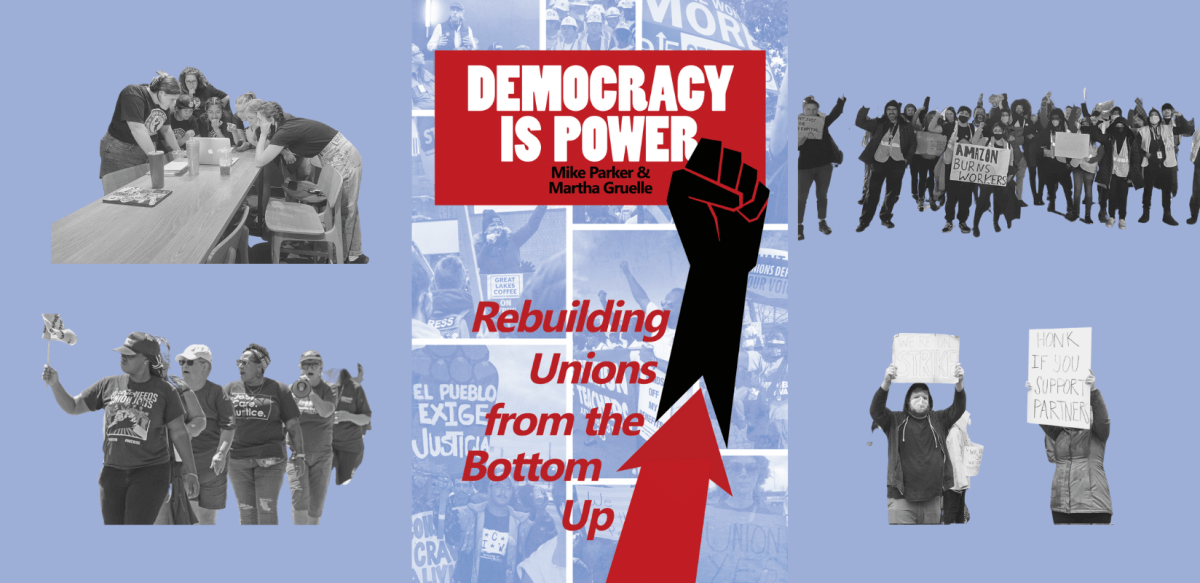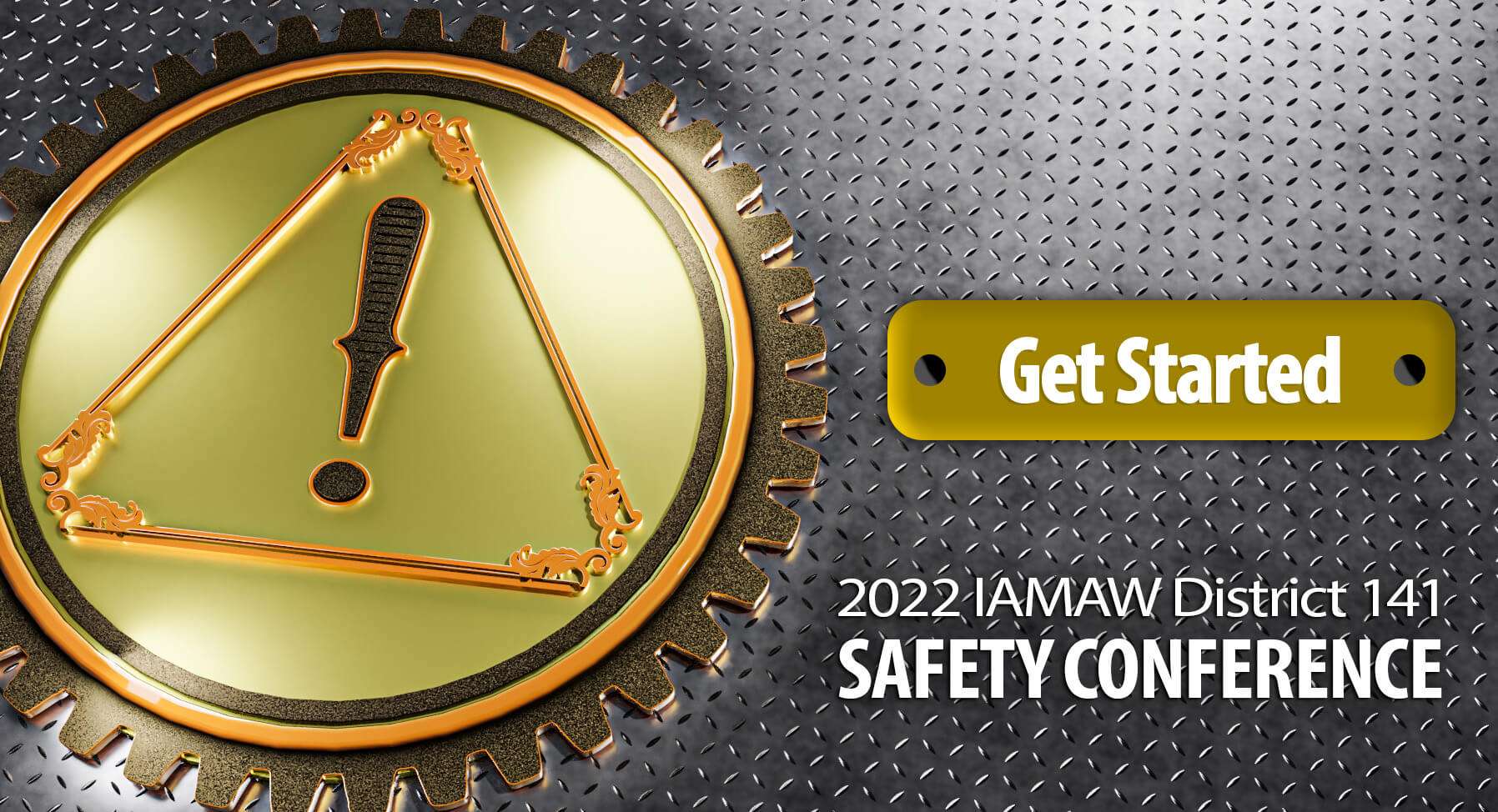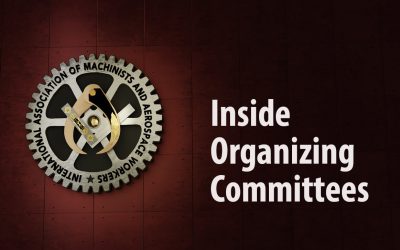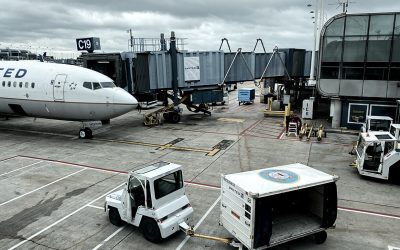
Frontline Power Is Essential to Rebuilding the Labor Movement
Labor Notes
Excerpted from Democracy Is Power: Rebuilding Unions from the Bottom Up by Mike Parker and Martha Gruelle, available from the Labor Notes store ($15).
Union democracy—defined as rank-and-file power—is the essential ingredient for restoring the power of the labor movement.
Many leaders of the labor movement know that they need members in motion if they’re to win anything. But too many envision a mobilized labor movement as troops ready to respond to the commands of their officers. Top-down control seems so efficient, and times are desperate. Do we really need democracy to have a movement? After all, aren’t people interested in results—not procedures?
There’s a grain of truth to this argument. Among many members, there’s a desire for a “powerful provider” to fight management for them. But even if top-down leadership could get results in the short term, in the long term a union without active members is a union without power—and the bosses know it.
One reason is the very conditions of global capitalism. Global competition means first and foremost that the labor movement must constantly spread. There is no security in organizing one workplace, one industry, or one company. If the organizing does not keep spreading to “take labor out of competition,” union conditions will die.
This process of continuous organization requires not thousands but millions of organizers—millions of workers who tell their sisters, cousins, friends, and lovers they’d be crazy not to join a union. Not millions of members who, when asked, answer, “Yeah, I was in a union once, they didn’t do anything for me.”
If we want members to go out and recruit, then the union has to deliver in the workplaces of the already organized. Members who see their union as a partner with management or as another boss will not carry a strong union vision to their non-union sisters and brothers.
After all, workers who want a union where they work are the ones that management calls troublemakers. It takes only a few moments with these troublemakers to understand that those who refuse to accept injustice from management will not accept it from union leaders either. If we are to recruit, organizers have to be able to look these potential members in the eye when they say, “Your union will belong to you.”
PREPARING THE GROUND
Unions have grown the most in surges, when hundreds of thousands of workers were inspired to act, rather than by slow accretion, one drive at a time. No one knows what will touch off the next upsurge in American history. We do know that we can’t make it happen just by having the right ideas and working hard. Movements grow in part when people respond to big changes in the economy and society.
Does this mean we should just sit back and wait? Far from it. We need to do everything we can to grow now, but in a way that prepares our organizations. We need democratic unions today, to train thousands of leaders and members who’ll be able to step up when the time demands.
In the end, the goal of our movement is not just bigger unions. It’s for working people to function as human beings—not bootlickers, not cogs—starting with our jobs, where we spend most of our waking hours. When we leave our jobs at the end of the day, we should be as healthy as when we started. We should be able to look at the next day, and our retirement years, with a feeling of security, not dread.
Our larger goal is for workers to exert power collectively in the workplace and society—and for that you need much more than bigger unions. You need powerful workers.
The above is an excerpt from Democracy Is Power: Rebuilding Unions from the Bottom Up by Mike Parker and Martha Gruelle. The book is back in print and available from the Labor Notes store ($15).
Tell Your Senator to Pass the PRO Act
[supsystic-social-sharing id='3']Most American workers want to join a union but can't. The PRO Act will help fix that. Nearly 60 percent of American workers would join a union if they had the opportunity to do so. American workers almost universally support pensions...
Primer on Inside Organizing Committees
[supsystic-social-sharing id='3']Inside Organizing Committees, often referred to as "Inside Committees" are a key part of organizing a workplace. Here's a little more information about how they work. Got Union questions? Call or text a Union Representative at (954)...
United Airlines’ Chicago Hub is Renewing Travel Restrictions
[supsystic-social-sharing id='3']Exploding Delta Variant case numbers in several regions of the US has caused the City of Chicago to impose a new round of travel restrictions. Starting last Friday, people traveling into the city from Missouri and Arkansas will have to...
Related News
Tell Your Senator to Pass the PRO Act
[supsystic-social-sharing id='3']Most American workers want to join a union but can't. The PRO Act will help fix that. Nearly 60 percent of American workers would join a union if they had the opportunity to do so. American workers almost universally support pensions...
Primer on Inside Organizing Committees
[supsystic-social-sharing id='3']Inside Organizing Committees, often referred to as "Inside Committees" are a key part of organizing a workplace. Here's a little more information about how they work. Got Union questions? Call or text a Union Representative at (954)...
United Airlines’ Chicago Hub is Renewing Travel Restrictions
[supsystic-social-sharing id='3']Exploding Delta Variant case numbers in several regions of the US has caused the City of Chicago to impose a new round of travel restrictions. Starting last Friday, people traveling into the city from Missouri and Arkansas will have to...








